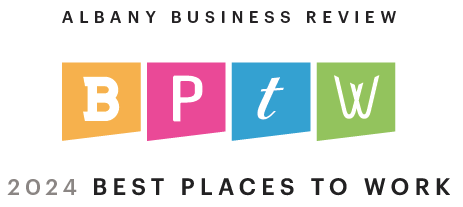Fair Labor Standards Act (FLSA)
Nov 28, 2023 In the complex terrain of labor laws, the Fair Labor Standards Act (FLSA) stands as a crucial federal statute shaping the landscape of employment in the United States.
In the complex terrain of labor laws, the Fair Labor Standards Act (FLSA) stands as a crucial federal statute shaping the landscape of employment in the United States.
The Fair Labor Standards Act, a cornerstone in federal labor law, establishes minimum standards for employees in private and government work. It is designed to protect workers from unfair pay practices and labor conditions.
As experienced employment attorneys in Albany, NY, The Towne Law Firm, P.C. emphasizes the importance of understanding the FLSA for both employers and employees. In this article, we illuminate the Act’s key elements, its coverage, exemptions, and the repercussions of non-compliance.
Key Provisions of the FLSA
1. Minimum Wage
The Fair Labor Standards Act sets a federal minimum wage, a crucial measure that safeguards workers from exploitation through excessively low pay. This baseline hourly rate is periodically adjusted to reflect economic changes, ensuring that employees have a wage that meets at least the basic cost of living standards.
It is important to note that some states and localities may have higher minimum wage rates, and in such cases, the higher rate prevails. This provision is essential in promoting fair labor practices and reducing poverty among workers.
2. Overtime Pay
Under the FLSA, employees are entitled to overtime pay when they work over 40 hours in a workweek. This provision is designed to compensate employees for the additional time and effort they put in, beyond the standard 40-hour workweek. It also serves as an incentive for employers to spread work hours among more workers, thus potentially increasing employment opportunities.
3. Recordkeeping
Accurate recordkeeping is mandated by the FLSA, requiring employers to maintain detailed records of hours worked and wages paid to each employee. This provision ensures transparency in the employer-employee relationship, facilitating the enforcement of the FLSA’s other provisions.
Records must include data such as time and day of the week when the employee’s workweek begins, hours worked each day, total hours worked each workweek, basis on which employee’s wages are paid, regular hourly pay rate, total daily or weekly straight-time earnings, and total overtime earnings for the workweek.
4. Child Labor
The FLSA includes specific provisions that regulate the employment of minors, protecting them from working in unsuitable and hazardous conditions. These regulations vary based on the age of the child and the nature of the work. For example, there are stricter rules for younger children and for industries considered hazardous.
The FLSA aims to ensure that work does not interfere with the education of minors and that their health and well-being are not compromised.
Exemptions in FLSA
The Fair Labor Standards Act is broad in scope, covering a wide range of employees across various sectors. However, understanding its coverage and exemptions is crucial for both employers and employees to ensure compliance with the law.
The Act identifies several exemptions and these include:
- Executive Exemption: This applies to employees whose primary duty is managing an enterprise, or a recognized department or subdivision of the enterprise.
- Administrative Exemption: Employees falling under this category primarily perform office or non-manual work directly related to management or general business operations of the employer or the employer’s customers, and exercise discretion and independent judgment with respect to matters of significance.
- Professional Exemption: This includes learned professionals whose primary duty is the performance of work requiring advanced knowledge.
- Computer Employee Exemption: Certain computer employees, such as systems analysts, programmers, and software engineers, are exempt if they meet specific criteria related to their job duties and compensation.
- Outside Sales Exemption: Employees engaged in making sales or obtaining orders or contracts for services or for the use of facilities for which a consideration will be paid by the client or customer, and who are customarily and regularly engaged away from the employer’s place of business.
*Note also that these exemptions might be different under state law.
FLSA Violations and Potential Penalties
Non-compliance with the FLSA can lead to significant penalties. Employers may face back pay orders, fines, and even criminal charges in severe cases. It is crucial for businesses to adhere to these regulations to avoid legal repercussions and maintain a fair workplace.
Whether you are an employer seeking guidance on compliance or an employee whose FLSA rights have been violated, The Towne Law Firm, P.C. stands ready to assist. Our knowledge and experience as employment attorneys in Albany, NY, positions us uniquely to offer comprehensive legal advice and representation. Contact us today to ensure your labor practices align with the FLSA standards.
Share














